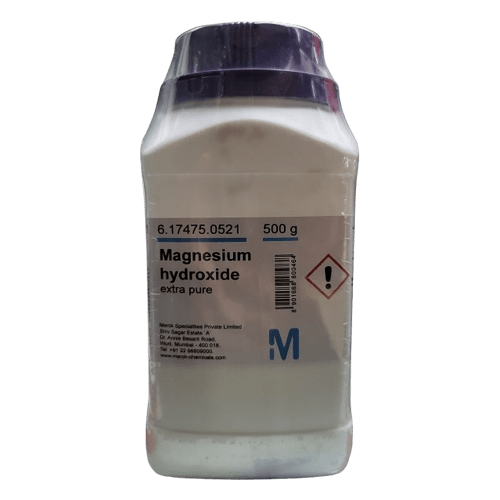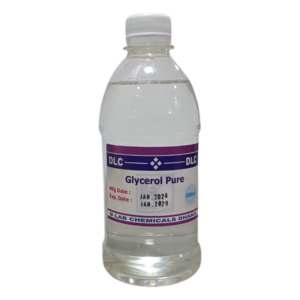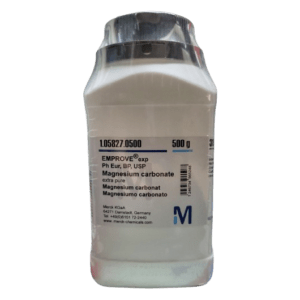Magnesium hydroxide is an inorganic compound with the chemical formula Mg(OH)₂. It occurs in nature as the mineral brucite. It is a white solid with low solubility in water. Magnesium hydroxide is a common component of antacids, such as milk of magnesia. This is the Laboratory Reagent Grade Chemical for Analysis.
Magnesium hydroxide is used to treat occasional constipation in children and adults on a short-term basis. Magnesium hydroxide is in a class of medications called saline laxatives. It works by causing water to be retained in the stool.
Magnesium hydroxide is an inorganic compound with the formula Mg(OH)2\text{Mg(OH)}_2. It appears as a white, odorless powder or a colorless, crystalline solid. Here are some key points about magnesium hydroxide:
Properties of Magnesium Hydroxide
- Solubility: It is poorly soluble in water but more soluble in acidic conditions.
- pH: It has a basic pH when dissolved in water.
Uses
- Antacid: Commonly used to relieve heartburn and indigestion.
- Laxative: Acts as an osmotic laxative, drawing water into the intestines.
- Industrial applications: Used in wastewater treatment, as a flame retardant, and in the production of other magnesium compounds.
Health and Safety
- Generally considered safe when used as directed, but excessive consumption can lead to side effects like diarrhea.
Chemical Properties
- Chemical Formula: Mg(OH)2\text{Mg(OH)}_2
- Molecular Weight: Approximately 58.3197 g/mol.
- Structure: It has a layered structure where magnesium ions are surrounded by hydroxide ions.
Preparation
- Synthesis: This can be produced by reacting magnesium salts (like magnesium sulfate) with a strong base (like sodium hydroxide).
- Natural Occurrence: Found in nature as the mineral brucite.
General Applications of Magnesium Hydroxide
- Medical Uses:
- Antacid: Neutralizes stomach acid, providing relief from heartburn and acid indigestion.
- Laxative: Commonly used in over-the-counter medications for constipation due to its ability to increase water in the intestines.
- Industrial Uses:
- Flame Retardant: Used in plastics, textiles, and paper to reduce flammability.
- Wastewater Treatment: Helps to neutralize acidic waste and precipitate heavy metals.
- Ceramics: Acts as a filler and stabilizer in ceramics and glass production.
- Agricultural Uses:
- Soil Amendment: Helps to neutralize acidic soils, improving nutrient availability for plants.
Benefits of Magnesium Hydroxide
- Gentle on the Stomach: Unlike some stronger antacids, magnesium hydroxide is less likely to cause gas and bloating.
- Dual Functionality: Provides both antacid and laxative effects, making it versatile in treating gastrointestinal issues.
Precautions
- Dosage: Overconsumption can lead to side effects such as diarrhea and abdominal cramping.
- Interactions: May interact with other medications; it’s advisable to consult a healthcare provider if taking other treatments.
- Chronic Use: Prolonged use can lead to electrolyte imbalances, particularly in individuals with kidney issues.
Environmental Impact
- Generally considered safe for the environment, but large quantities of wastewater can affect pH levels in aquatic systems.






Reviews
There are no reviews yet.